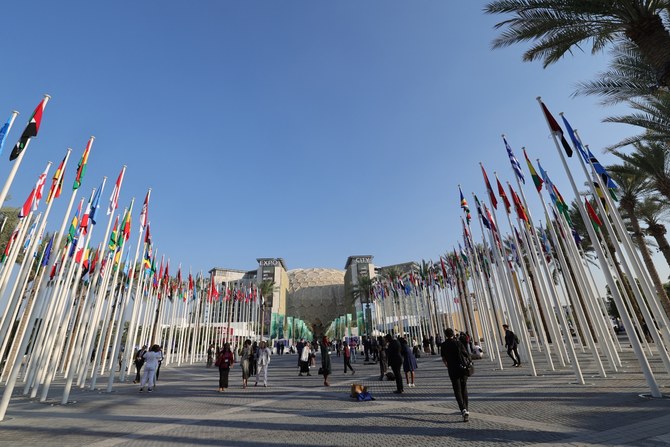
Algeria burst into protest last month after the country’s longest-serving president, Abdelaziz Bouteflika, announced he would run for a fifth consecutive term in office. Under pressure, the veteran of Algeria’s horrific war of independence later issued a letter stating his decision not to run. It was a historic victory for Algeria’s demonstrators, who numbered more than a million across the country. Though Bouteflika technically remains in power as Algeria’s general election is now postponed, the recent developments have put Algeria in the spotlight as a young population vies for changes to the political and economic status quo. With the right management, the situation presents a real opportunity for those who wish to enact real change in a country that has stagnated.
A cabal of deep state operators and the ruling National Liberation Front (FLN) party have dominated Algerian political and economic life since independence. Known as “le pouvoir,” their iron grip on power has ensured there is so far no viable opposition or successor who can challenge their authority by relating to the protesters seeking change. To a large extent, this is why demonstrations have continued, with many viewing Bouteflika’s concession as a maneuver to keep him and the clique he represents in power. Moving forward, considerable doubt hangs over the future, as uncertainty grips the country. Those within the establishment who have dismissed the protests as meaningless — and only the request of a small part of the population for economic reforms — have gravely miscalculated. The protests are symbolic of the aspirations of a young population disenchanted with their prospects within a fossilized state.
The immobility of the country’s figurehead has come to represent a generation of failure and missed opportunities for a potentially hugely successful nation with ample natural resources. Rather than being anarchic or disruptive, a feeling of patriotism and justice has characterized demonstrations, with the leaderless movement representing the entire cross section of Algerian society. Appalled at the state of the economy and the impunity of Bouteflika’s coterie of military, secret service and business leaders who run state affairs between them, Algeria’s youths are themselves showcasing their nation’s great potential.
Rather than being anarchic or disruptive, a feeling of patriotism and justice has characterized demonstrations
Zaid M. Belbagi
Despite its incredibly strategic location and considerable wealth, the boom that neighboring Morocco has experienced has largely passed Algeria by. The Bouteflika regime historically used earnings from oil and gas exports to buy social peace by channeling them into subsidies and handouts but, since oil prices have slumped, its financial firepower has been limited. Energy, which accounts for nearly 98 percent of the country’s exports, remains an industry that has suffered from underinvestment. Officials have lacked the drive and vision to diversify the state-dominated economy to create new job opportunities. As politically connected business people have amassed great fortunes from state spending, the critical investment needed to grow the economy has not been forthcoming. According to experts, Algeria’s declared natural gas reserves — the 10th largest in the world — are massively underestimated, as the government has failed to invest in exploration. Even in the post-2014 financial reality, the country has not made large efforts to be less energy profit dependent, failing to tap the country’s economic potential.
Youth unemployment is hovering at about 28 percent, given the reality that the population has nearly quadrupled from 11 million in 1962 to 41 million today. However, Algeria has the resources to provide prosperity if the government were to loosen controls and diversify the economy. A lack of openness to international investment and a reliance on creating employment through state jobs has limited economic potential to date. With foreign debt at almost zero and growth that is low but positive, now is the time to invest precious resources to make the most of its young population and enviable geographic location. Despite being a linchpin provider of gas to Europe, Algeria has enormous potential for renewable energy. Enjoying sunshine duration of 2,000 to 6,000 watt hours per square meter (10 times world consumption), it is potentially one of the largest solar energy sources in the world.
Underlying the public’s discontent are dire economic circumstances — the heavy hand of the state has created a lack of openness to international investment and an economy that has not matured like that of its neighbors. A country that sits on one of the world’s largest gas reserves should not be printing money to cover deficits, especially when one-third of the country has not even been explored for natural gas.
Recent events have shown the desperation of the people for their government to resuscitate the economy. In the late 1990s, a low oil price caused similar issues, forcing the government to accept a structural International Monetary Fund adjustment program, though oil prices rose again soon after and the authorities closed the economy once more. This time around, the government does not have the option of avoiding the wide-ranging reforms needed to significantly improve Algeria’s prospects, as millions of young people enter the workforce every year requiring new jobs. For years, the authorities menaced the population with the prospect of the country descending back into bloody civil war. However, to today’s young protesters, who have little or no recollection of the troubles, the prospect of normality has allowed them to release their inhibitions and draw the generals out of the shadows.
Zaid M. Belbagi is a political commentator, and an adviser to private clients between London and the Gulf Cooperation Council (GCC). Twitter: @Moulay_Zaid
Disclaimer: Views expressed by writers in this section are their own and do not necessarily reflect Arab News" point-of-view












